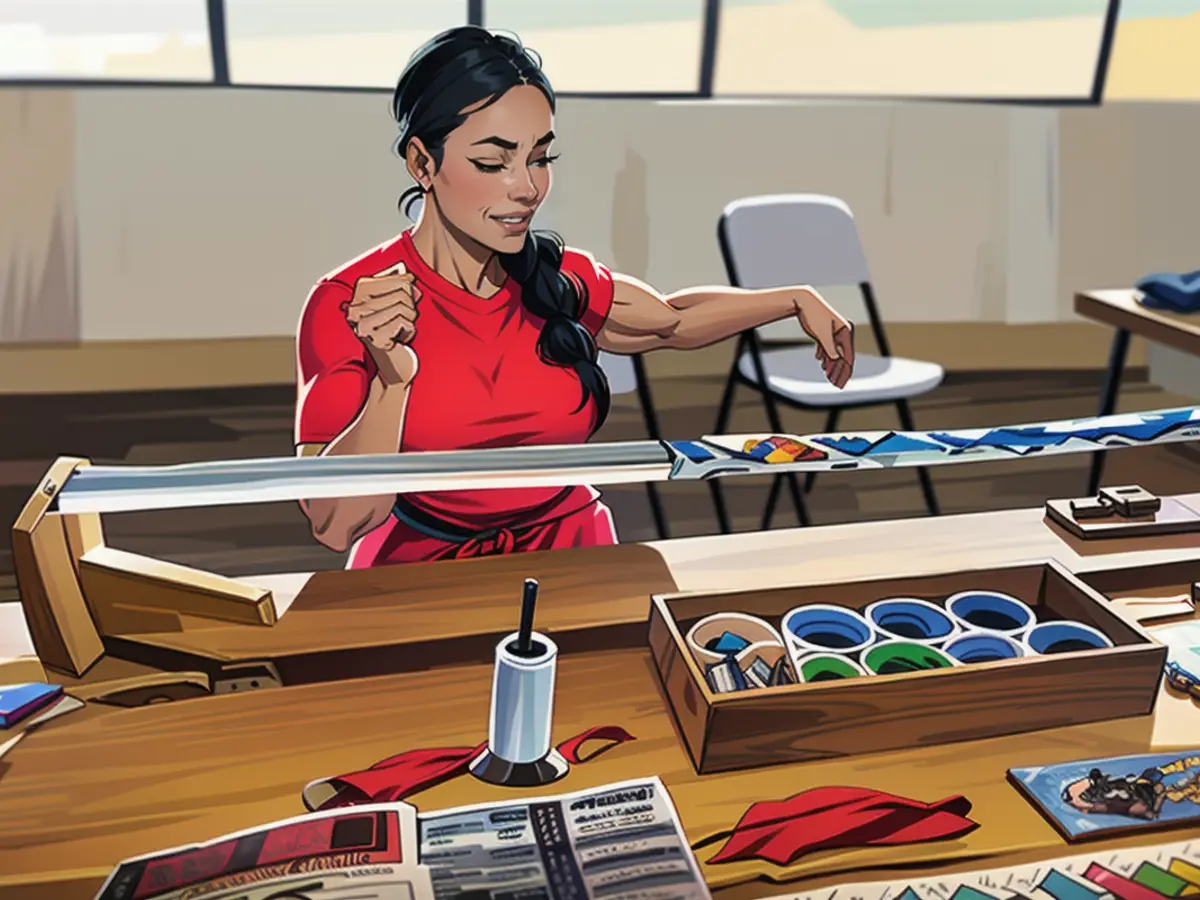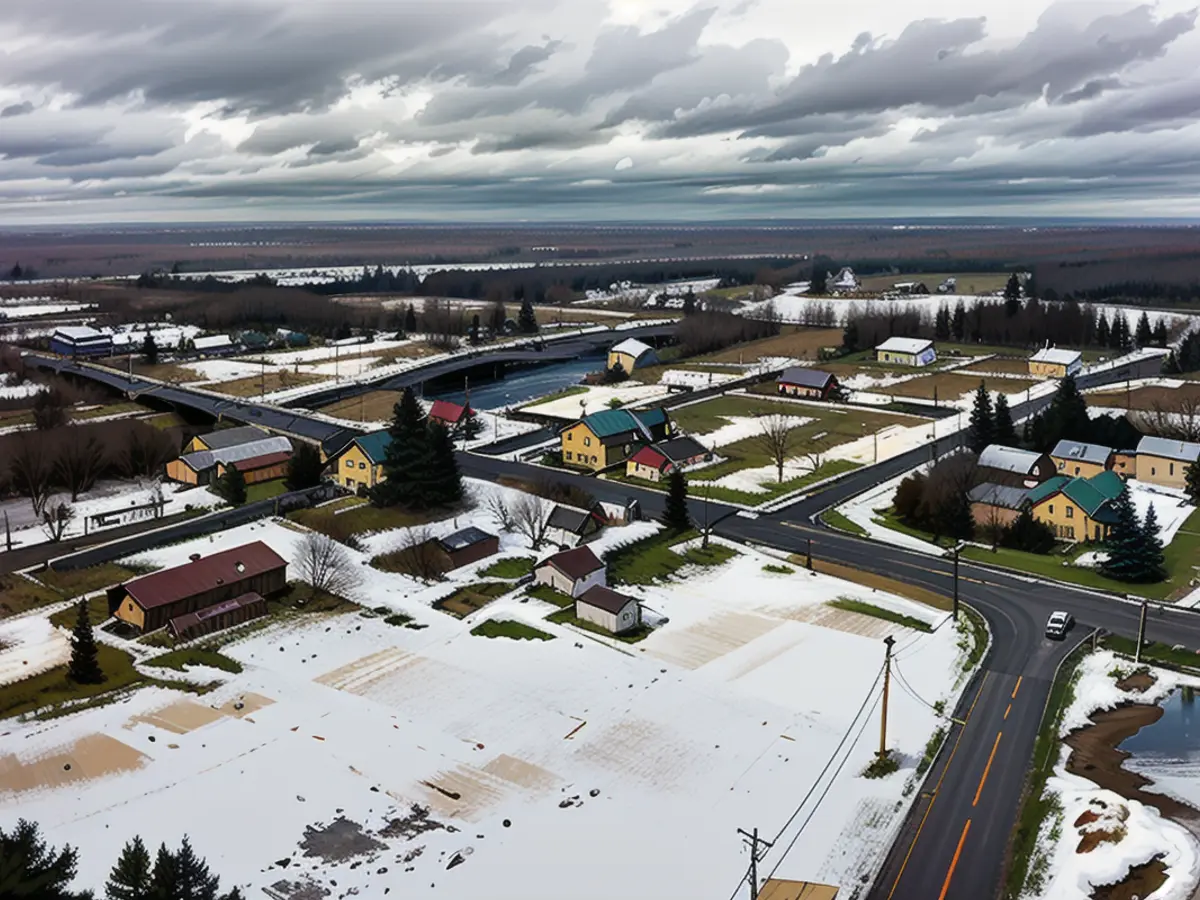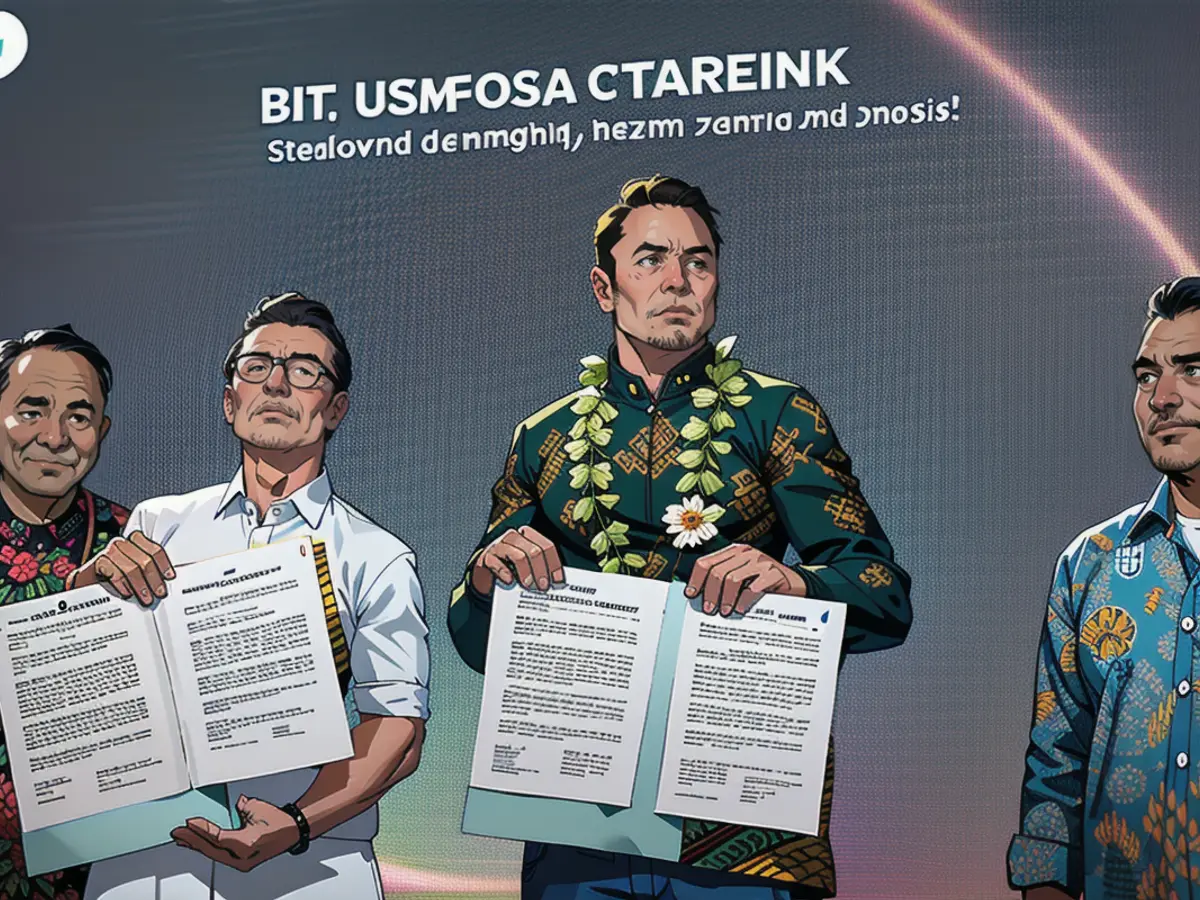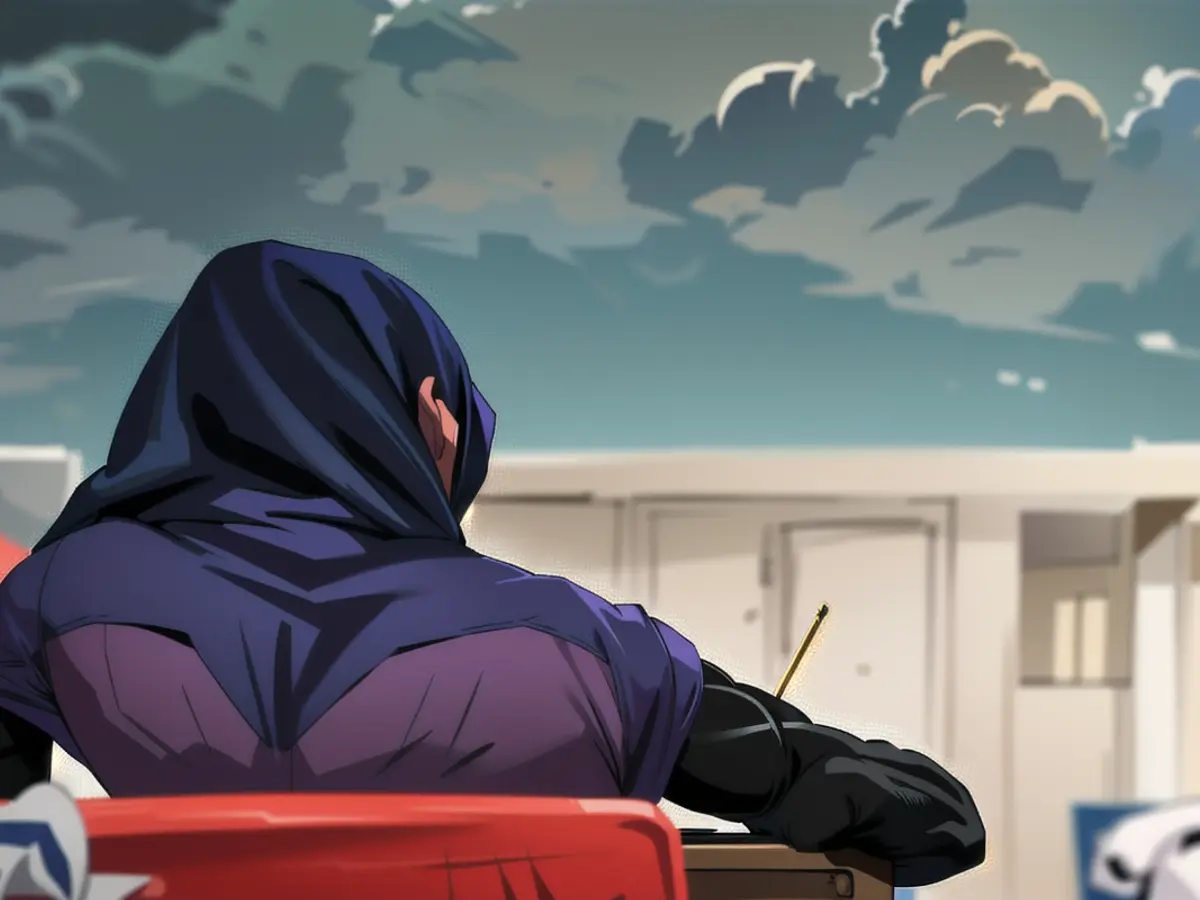The least expensive internet access is bound to affect indigenous communities disproportionately.
Kelly Back, belonging to the Akwesasne Mohawk, crafts traditional embroidered accessories such as belts, hat bands, purses, and sashes. These items are worn by around 13,000 members of her tribe at various celebrations and ceremonies.
She began her craft in 2014, where her work primarily circulated within her community initially. However, after she embraced social media, her small business expanded significantly. Back stated to CNN, "My business wouldn't be here if it weren't for social media as I don't just gain followers within our communities. I get followers and customers from all over the world."
To expand her global reach, Back shares various Instagram videos demonstrating her production process. She outlines her personalized designs on paper before meticulously beading them using her loom.
Currently, she generates a five-figure annual income from her creations. Therefore, the U.S government's offer to assist her with the cost of internet service by providing up to $75 per month was welcoming.
Back mentioned, "That's a few meals right there. Any amount of money helps, especially for indigenous communities, since many of our people depend on their cultural artwork to survive."
However, this assistance is now at risk. In a few weeks, the two-year-old U.S. Affordable Connectivity Program is expected to deplete its funds, with Congress appearing unlikely to sanction additional funds. This will leave more than 23 million low-income U.S. households in a sudden financial crisis.
Naturally, indigenous users of the program may be hit the hardest by its demise. Since many tribal reservations are in areas with high construction expenses and low population densities, building infrastructure is arduous and expensive. Adding to the challenge is the high poverty among native American communities, making internet plans inaccessible for numerous tribal households.
High impact on tribal communities
Cessation of the ACP could impact around 40 million people in the United States — nearly one in five households. With the FCC already phasing down the program, enrollees will receive only partial benefits in May, and the ACP will expire completely at the end of the month.
Some legislators are aiming to renew the program via bipartisan legislation. Pennsylvania Democratic Senator John Fetterman is the most recent to introduce a bill. His Promoting Affordable Connectivity Act proposes that the Federal Communications Commission (FCC) should borrow up to $25 billion from the U.S. Treasury to continue the program temporarily. The bill also resolves future funding uncertainty by distancing the ACP from congressional budget battles and placing it under an existing FCC fund for schools, libraries, and low-income homes.
Though many American households may face increase in internet bills, or discontinue their service due to inability to afford them, Native American communities may fare worse.
Jonathan Nez, a former Navajo Nation president, highlighted the challenges in his interview. "In most of these 500-plus tribes in this country, infrastructure is still five decades behind. I've said this many times: 30% to 40% of our Navajo people don't even have running water or electricity."
The ACP provides benefits based on income. But ACP participants on tribal grounds can receive up to 2.5 times more, which amounts to $75 per month. Hence, the loss of the subsidy would be more profound for tribal households.
Almost 329,500 tribal families benefit from the ACP, as stated by FCC Commissioner Geoffrey Starks, a vocal supporter of the program.
These households are primarily located in five U.S. states — Oklahoma, Arizona, New Mexico, Alaska, and South Dakota. Starks mentioned, "I want to keep this momentum. That means keeping the program going."

A vital lifeline for preserving culture and community
Like many beneficiaries of the ACP, tribal users depend on the internet to access education, telework, and manage their small businesses. But beyond these benefits, the internet also offers significant opportunities to preserve their cultural traditions.
As tribal members can now work from home, they do not have to relocate from their communities to search for better opportunities. Instead, they reside closer to their tribal elders and engage with their cultural heritage.
"The availability of the internet has resulted in some remarkable improvements in various aspects, particularly in language and cultural preservation, according to Allyson Mitchell, the manager of Mohawk Networks, a native American-owned internet service provider," she shared.
Mitchell went on to explain that decades of decline in the Mohawk language have seen a significant increase in tribal involvement in online language immersion programs. She mentioned that adults who remembered the language from their childhood, as they had elders speaking to them in Mohawk, are now participating in these programs to learn the language for themselves.
"In many households where there are multiple generations, the ability to communicate and stay connected is crucial," she stated. "Culture and language preservation efforts have gained momentum due to the easy access to high-speed internet."
The pressures of the COVID-19 pandemic affected indigenous communities, but there was a silver lining - an increase in cultural renaissance according to Nez, the former Navajo president who is now running for a US House seat in Arizona. Even during the lockdown, the Affordable Connectivity Program and its pandemic-era predecessor, the Emergency Broadband Benefit Program, helped Navajo members stay connected and engaged in their culture.
"We experienced a revival in our teaching, learning, and traditions," he said. The tribal elders can now comfortably use electronic devices, and many of them are even utilizing it for telehealth services, alleviating the need for in-person visits. Navajo government documents show about 40,000 Navajo members signed up for the ACP by 2023.
Derrick VanSoolen, who previously assisted Choctaw Nation members in Oklahoma to enroll in this federal program, has been inundated with calls from worried tribal members in recent times. "Lots of older people are calling me, concerned about losing their internet connection," he said. "Many of these individuals rely on the internet for communication with their children, who have moved away. And for working parents with children on online classes, losing the internet would be catastrophic for them."
The Bois Forte Band of Chippewa, a federally-recognized tribe in Minnesota, is one among those considering building their own ACP. However, it's an incredibly expensive prospect. Randy Long, the Information Technology Director for their tribal government, estimated that creating their own ACP would cost around $100,000 every year which is about 60% of their entire telecommunications budget.
"We're situated approximately 65 miles away from any city with a population of 5,000 or more," Long said.
Even though some tribes have the capacity to take over this program, the sense of betrayal it would create within these communities is a major concern. "I'm worried about whether everyone who was on the ACP before will come back if it's resumed," said Gary Johnson, the General Manager of Paul Bunyan Communications, a telecom cooperative in Minnesota. "I believe trust may have been lost." It's likely that this incident might be added to the US government's long history of failing to keep their word to Native American communities.
As she watches the government withdraw support for the program that helped sustain her business, Back expressed her doubt about any future attempts to restore the ACP. "Regardless of whether this program is brought back, I will be cautious about it, as the trust is lost," she said. "I sincerely hope that they reconsider this and provide us with continuous support, considering us as equal members of a nation."

Read also:
- Telefónica targets market launch for hologram telephony
- vzbv: Internet companies continue to cheat despite ban
- Telefónica targets market launch for hologram telephony in 2026
- AI and climate in schools: how to keep lessons up to date
Source: edition.cnn.com








